David Wilk interviews poet and publisher Bill Corbett
October 30, 2016 by David
Filed under Publishing History, PublishingTalks
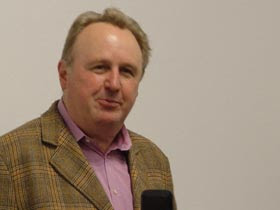 Publishing Talks began as a series of conversations with book industry professionals and others involved in media and technology about the future of publishing, books, and culture. As we continue to experience disruption and change in all media businesses, I’ve been talking with some of the people involved in our industry about how publishing might evolve as our culture is affected by technology and the larger context of civilization and economics.
Publishing Talks began as a series of conversations with book industry professionals and others involved in media and technology about the future of publishing, books, and culture. As we continue to experience disruption and change in all media businesses, I’ve been talking with some of the people involved in our industry about how publishing might evolve as our culture is affected by technology and the larger context of civilization and economics.
I’ve now expanded the series to include conversations that go beyond the future of publishing. I’ve talked with editors and publishers who have been innovators and leaders in independent publishing in the past and into the present, and will continue to explore the ebb and flow of writing, books, and publishing in all sorts of forms and formats, as change continues to be the one constant we can count on.
For the past several years, I’ve been talking to editors and publishers of independent presses about their work, including a number of important literary publishers. It’s a great pleasure for me to add Bill Corbett to this group. He’s been a key figure in the Boston literary scene for more than forty years, though he has now moved to Brooklyn.
Corbett’s house in the South End was an essential literary salon for local and many visiting artists, poets, and writers. Corbett has been active in what has been known as the “New York School” of poets, with a deep and abiding interest in the intersections of art and poetry. In a review of Corbett’s All Prose, Kevin Gallagher said “Corbett is ambassador to a strange land.”
Editing and publishing have also been central to Corbett’s work. He edited the literary journal Fire Exit with Fanny Howe and The Boston Eagle, with Lewis Warsh and Lee Harwood, wrote for the Boston Phoenix, and has been involved with literary magazines Ploughshares, Agni, and Grand Street. In 1999, Corbett founded Pressed Wafer, a small press publishing poetry, essays, and art writing. Corbett taught writing at MIT, and also has taught at Harvard and Emerson.
Patrick Pritchett summed up Corbett’s work rather well as follows:
For several decades now, Corbett has been one of our leading men of letters – the phrase itself has been rendered almost extinct in this age of ubiquitous bloggery and relentless peer-review – but I use it here to indicate a breadth of range and a fineness of attention that once upon a time was the norm, rather than the exception. As poet, essayist, memoirist, art critic, literary historian, publisher and tireless promoter of other writer’s work, Corbett is – yet ought not to be – sui generis. But even if the present time were more thickly populated by writers of comparable range, he would still be a force to be reckoned with, in a category of his own.
In this conversation, we talked about a wide range of topics, but it seems we may have barely scratched the surface of Corbett’s work in art and writing. I hope we will have a chance to talk again soon.
Links:
Pritchett essay about Bill Corbett on the blog Writing the Messianic
Pressed Wafer books “poetry fiction essays art memoir etc”
Podcast: Play in new window | Download
Publishing Talks: David Wilk interviews DeWitt Henry of Ploughshares
February 10, 2014 by David
Filed under Publishing History, PublishingTalks
 Publishing Talks began as a series of conversations with book industry professionals and other smart people about the future of publishing, books, and culture. As we continue to experience disruption and change in all media businesses, I’ve been talking with some of the people involved in our industry about how they believe publishing might evolve as our culture is affected by technology, climate change, population density, and the ebb and flow of civilization and economics.
Publishing Talks began as a series of conversations with book industry professionals and other smart people about the future of publishing, books, and culture. As we continue to experience disruption and change in all media businesses, I’ve been talking with some of the people involved in our industry about how they believe publishing might evolve as our culture is affected by technology, climate change, population density, and the ebb and flow of civilization and economics.
Recently, the series has been expanding to include conversations about a wider range of subjects beyond my initial interest in the future of publishing. I’ve talked with editors and publishers who have been innovators and leaders in independent publishing in the past and into the present, and will continue to explore the past, present and future of writing, books, and publishing in all sorts of forms and formats, as change continues to be the one constant we can count on.
It’s my hope that these conversations can help us understand the outlines of what is happening in publishing and writing, and how we might ourselves interact with and influence the future of publishing as it unfolds. This week’s interview reflects my interest in comic art, illustrated story telling and new technology as a platform for expanding story telling in interesting and challenging ways.
Ploughshares is one of the great literary magazines of the last fifty years. Founded in 1971 in Boston by writer, teacher and scholar DeWitt Henry and writer and bar owner Peter O’Malley, it has gone on brilliantly from very humble beginnings to publish an extraordinary range of writing. Founded in a bar called the Plough and the Stars in Cambridge, Massachusetts, Ploughshares to give the young and upcoming writers of its time a voice and a platform, the magazine has been a literal breeding ground for great writers of fiction, poetry and nonfiction as well.
One of its innovations was to invite writers to guest edit individual issues. The list of editors is pretty incredible, including Seamus Heaney, Derek Walcott, Rita Dove, James Alan McPherson, Philip Levine, Gerald Stern, Raymond Carver, Rosellen Brown, Maxine Kumin, Donald Hall, Marilyn Hacker, Mark Doty, Richard Ford, Sherman Alexie, and many others. Ploughshares editors have received almost every award given in American writing. Throughout its now celebrated history, Ploughshares has managed to maintain a high level of excellence in writing and has avoided being trapped by the narrowness of a particular school or narrow vision of what American writing can be. It has consistently nurtured new talent, and continues today to bring attention to new writers. And lately, Ploughshares has broadened the definition of what a literary magazine can be with an innovative series of ebooks called Ploughshares Solos.
Interviewing DeWitt Henry about the history of the magazine, bis work as editor and writer, and the current and future of Ploughshares was a great pleasure for me. Having been involved in literary publishing and distribution myself, I know how incredibly difficult it is to sustain both the artistic and structural vision in this kind of publishing. Ploughshares truly represents an extraordinary accomplishment for those who have worked on it, published in it, and of course read the magazine during the many years of its existence.
There’s an excellent history of the magazine on it website. And you might want to visit DeWitt Henry’s own website to learn more about him as well. He is am accomplished and interesting writer too. Alert to listeners, as this is part of an effort to document the oral history of literary publishing, this is a longer than usual podcast – but worth your time to listen.
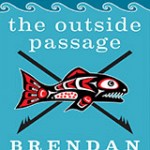
Podcast: Play in new window | Download
Douglas Trevor: Girls I Know (A Novel)
October 2, 2013 by David
Filed under Fiction, WritersCast
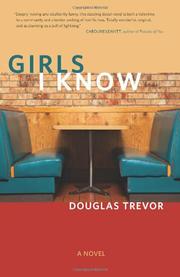 978-0983150534 – Sixoneseven Books – paperback – May 1, 2013 – $15.95 (ebook versions available at lower prices)
978-0983150534 – Sixoneseven Books – paperback – May 1, 2013 – $15.95 (ebook versions available at lower prices)
A debut novel set in Boston, Girls I Know has an unusual narrative structure that sometimes feels like a love song to the city of Boston as much as a novel about the protagonist, tortured failed graduate student, Walt Steadman. Walt is a classic nebbish – dropped out of graduate school writing a thesis on an obscure poetic subject, making his living now as a sperm donor and doing odd jobs.
Walt is painfully obsessive – as a way to channel his feelings of failure and indirection. He goes to the same small coffee shop for breakfast almost every day, where he befriends the owners and their daughter, Mercedes. He loves Boston in an obsessive way too. The real story of the novel begins when Walt is survives a terrible shooting at his favorite restaurant which leaves four people dead, including his friends.
Now he is forced to confront himself and in his recovery, try to find the self he has buried in his self indulgent lifestyle. The girls he knows are both complicated – the effervescent Ginger Newton, Harvard undergraduate – another obsessive, but a much more active one, she is writing a book called Girls I Know about women and their jobs and the heartbroken and speechless Mercedes, whose parents are now dead. How he interacts with these two “girls” on his path to self discovery and redemption are what this book is really about.
I liked this book much more than I initially thought I would (coming of age stories are not usually my forte as a reader). Trevor is a very good storyteller, and his characters are all interesting and well drawn. And his Boston comes to life throughout the book. Trevor knows his way around characters and places and his writing is strong. His collection of short fiction, The Thin Tear In The Fabric Of Space, won the Iowa Short Fiction award in 2005. Author website here.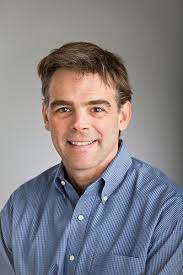 Kudos to this independent publisher, Sixoneseven, for doing an excellent production job and a serious effort to market and promote a very good book.
Kudos to this independent publisher, Sixoneseven, for doing an excellent production job and a serious effort to market and promote a very good book.
Podcast: Play in new window | Download
David Gessner: My Green Manifesto: Down the Charles River in Pursuit of a New Environmentalism
December 3, 2011 by David
Filed under Non-Fiction, WritersCast
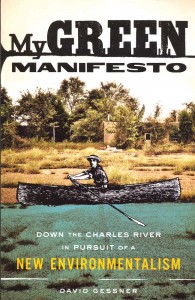 978-1-571313-24-9 – Milkweed Editions – paperback – $15 (ebook editions available)
978-1-571313-24-9 – Milkweed Editions – paperback – $15 (ebook editions available)
David Gessner is a sort of post-modernist environmentalist. He’s written a number of books that celebrate the natural world and the wild, and he is a terrific writer capable of transcendent prose and has the keen observer’s eye that anyone writing about nature must have. But he understands the difficulties and contradictions that suffuse contemporary civilization. And he has a sense of humor and irony (which environmentalists are not always known for).
In My Green Manifesto, he addresses a major issue that affects so many of us who feel strongly about the arc of modern civilization, that its inertia is overwhelming, the problems so great, the solutions so elusive, and the efforts of individuals so ineffectual as to make us lose all hope of being able to make meaningful change.
The book takes us through Gessner’s journey from the headwaters of the Charles River to its end in Boston’s urban harbor. His trip is made for the most part in company with a true environmental hero, Dan Driscoll, who almost single-handedly spurred the suburban and urban communities along the once highly polluted river to make significant changes to both restore and protect the river and riverside ecology. They travel in a leaky canoe, drink beer, sleep in tents, and enjoy the pleasures of a “limited-wild” experience.
Gessner takes heart from the work Driscoll has done, and shows us how important his practical efforts have been. “This new picture is that of a man or woman who knows how to get things done, who understands the value of momentum, of focus on a particular project. Not a shrill or dry or particularly flowery environmentalism … Someone willing to get in [a] fight and ‘Sue the bastards.’ Someone willing to stick their nose in there and feel what it’s like to get bruised. And someone willing to stay locked in that fight for years, even if it costs them emotional as well as actual capital.’’
Gessner writes with great humor and joy about the pleasures of being in nature, wherever one lives, and that is the core of his manifesto. His ideas will resonate for many who are not willing, able or equipped to spend significant time in distant wildernesses. And as a “manifesto” this book will be easy for most readers to digest and accept. Gessner’s message is positive and powerful because it is realistic and not preachy and because so many of us can relate to his experiences of the joy of being in nature and at the same time despair over the sheer extent of modern society’s environmental unconsciousness.
Gessner reminds us that it is possible to hold two seemingly contradictory ideas in our minds at the same time, that complexity and contradiction are almost facts of life, but cannot defeat us from taking action to make change. “The first idea was acceptance, the acceptance, totally without rancor, of life as it is, and men as they are … But this did not mean that one could be complacent, for the second idea was of equal power: that one must never, in one’s own life, accept these injustices as commonplace but must fight them with all one’s strength.’’
Author website here (you can find a list of all his many fine books there) Gessner’s latest book is one I am interested in reading as well. The Tarball Chronicles: A Journey Beyond the Oiled Pelican and Into the Heart of the Gulf Oil Spill chronicles his visit to the Gulf after it had passed out of the news. Not an uplifting story, I fear.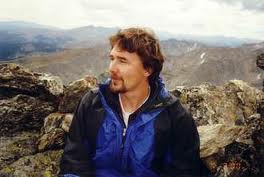
Podcast: Play in new window | Download
